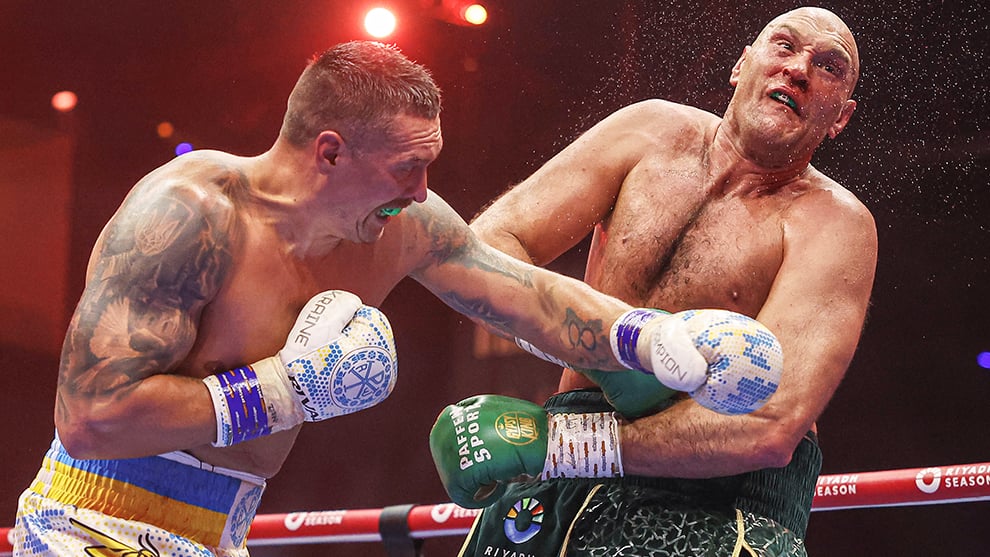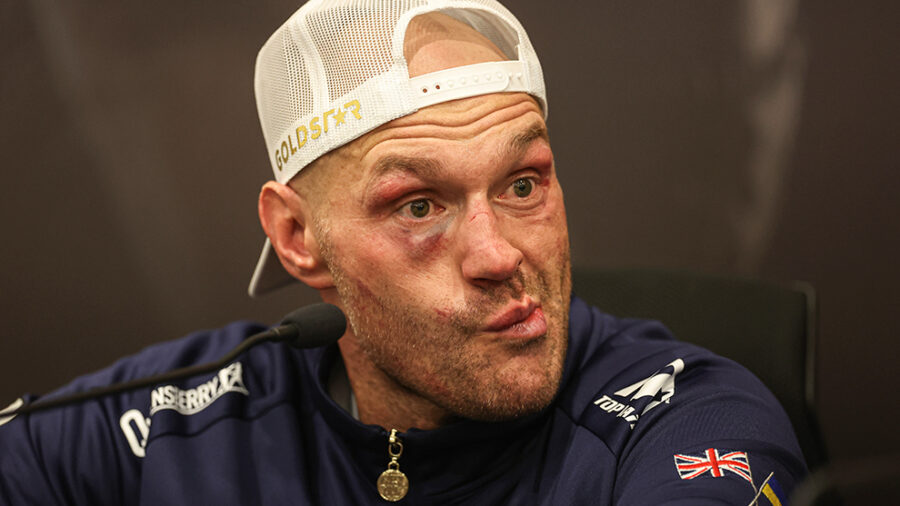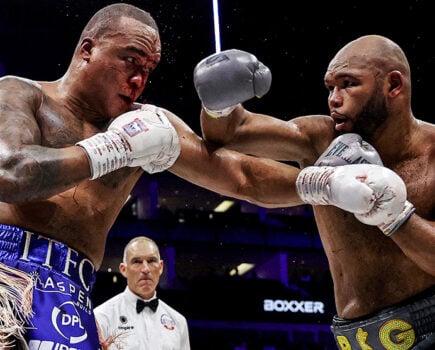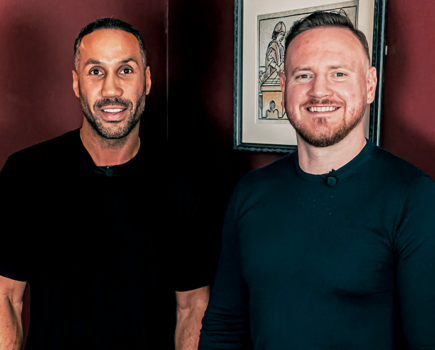By Elliot Worsell
THE mistake people make when judging Tyson Fury on his comments – whether pertaining to Oleksandr Usyk or anything else – is that they try to view these comments as the comments of a rational, clear-headed human being. That is to say, they view them not as the thoughts of a professional boxer, for whom every hour offers the chance to lie, but as those of someone they might know, like, or find remotely relatable.
The truth is, Tyson Fury and his ilk are a different breed. They are boxers, for a start, meaning they give and receive punches in order to make their life, the very thing threatened by the act, somehow better, at least materially. They are also masters of self-promotion and, often, self-delusion. Indeed, an ability to do both, and well, is the key to getting ahead in this game; one that hurts as many men as it helps.
In the case of Fury, arguably as good a self-promoter as we have ever seen, he finds himself now, having just lost his first pro fight, never more in need of both his ability to promote and his ability to delude himself. These two things remain the cornerstone of his success, yet the major difference now is that he is being watched with narrower eyes and preaching no longer to the converted but the sceptical.
This became clear last week when Fury, discussing his May fight against Usyk, said the following: “It was actually a lot easier than I thought, the Usyk fight. A lot easier. People were saying he is a hard man to hit, but I was lighting him up with three- and four-punch combinations and laughing at him. My problem in that fight was that I probably had too much fun. It was probably too easy. At times it was too easy. It was like I was in there with a local amateur boxer and I was just enjoying it too much and messing around. And I paid the ultimate price in round nine when I got a 10-8 round and got clipped. That’s what happens when you have too much fun.”
Based on these comments, some might venture to say the fun, for Fury, never stopped. However, if they are to be taken at face value, and there is no reason to believe Fury is lying (at least to himself), it would be remiss of us not to reconsider the Usyk fight and how it transpired from Fury’s point of view. After all, according to him, everything was going to plan until he found himself having a bit too much fun and was caught in round nine. Up to that point he felt he was well on his way to victory, and really, whether you agree with this or not, only he will know whether this is accurate. Certainly, though, there were rounds preceding the ninth in which Fury looked not only comfortable but in control; which, I guess, adds credence to what he is saying and adds colour to the picture he is, with the brush of hindsight, now trying to paint.

Fury is rocked by Usyk (Richard Pelham/Getty Images)
Beauty, they say, is in the eye of the beholder and Fury, when looking at his own work, sees something the rest of us cannot – and that is just fine. While the rest of us see something abstract, and something difficult to understand, Fury, being the artist and the one who experienced both the process and the emotions attached to it, is able to interpret and describe it in a way that is for us out of reach. Whether that makes his interpretation believable, or even truthful, is another argument entirely, but at the very least it must be respected and understood. He, after all, was the one actually in there with Usyk feeling things the rest of us only watched.
If Fury, as the loser of the fight, has now felt the need to lie to himself in order to repair his confidence ahead of a rematch later this year, that is perfectly fine as well. Moreover, if indeed that is the thinking, Fury will only be doing something countless other boxers have done, by way of a coping mechanism, since time immemorial.
“At the climax of failure,” wrote the Romanian philosopher Emil Cioran, “at the moment when shame is about to do us in, suddenly we are swept away by a frenzy of pride which lasts only long enough to drain us, to leave us without energy, to lower, with our powers, the intensity of our shame.”
With Fury, a man so accustomed to winning, there is clearly a great deal of pride on display – always. There is also delusion, albeit of the necessary kind for a boxer, and ego; again, necessary for anyone setting foot inside a ring. If you can bear this, however, and accept it for what it is, you may then find an element of truth in what Tyson Fury has had to say about his first professional loss. It is, of course, only his truth, but isn’t that, when all is said and done, the single truth of any real relevance or importance in matters such as this?






